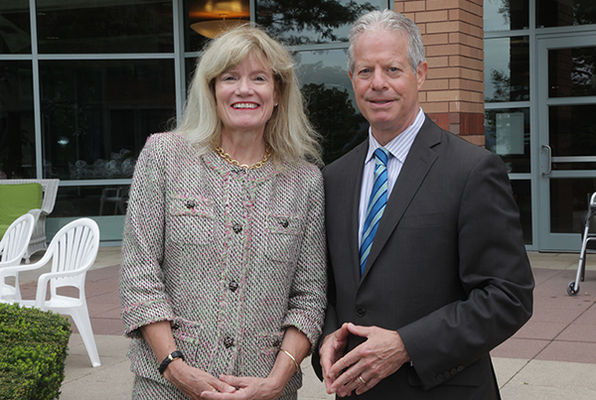I recently had the opportunity to speak with The John A. Hartford Foundation’s longtime partner and friend, Daniel Reingold, President & CEO of RiverSpring Health, a leading non-profit senior care organization that cares for 12,000 older New Yorkers every day. RiverSpring Health includes the Hebrew Home at Riverdale, which is celebrating its 100th anniversary this year.
Terry Fulmer (TF): Congratulations on your 100th anniversary, Dan. What, in your view, is needed to foster a more age-friendly culture in this country?
Dan Reingold (DR): Thank you, Terry. At the Hebrew Home, we have always understood that aging can take different shapes and sizes with each individual and that one size does not fit all. As an organization, we have always tried to respond to this diversity of the aging experience in as natural a way as possible.
As a matter of fact, while many of our programs and services over the years were considered groundbreaking at the time, we viewed them as a natural response to this diversity of experiences in aging. These include the creation of the nation’s first sexual expression policy in long-term care; the Balance app, which connects families of those living with Alzheimer's and related dementia with caregivers and professionals; the first overnight program for people with dementia and Alzheimer’s; the nation’s first elder abuse shelter; and the availability of cannabis for residents living with pain and discomfort from Parkinson’s, neuropathy, and other medical conditions.
Similarly, The John A. Hartford Foundation has been a model for addressing aging diversity with its impactful programs and initiatives. The Hebrew Home applauds the Foundation’s partnerships and support of age-friendly models and practices. Together, and with other stakeholders in older adult care, it will be critically important to promote a wider understanding within the culture of the diverse nature of aging to engender greater sensitivity and respect for the contributions of older adults.
TF: You and I both feel strongly that ageism is a major problem in many parts of our health care system, as well as in society at large. Do you think ageism is worse now than before?
DR: It may or may not be, but what’s more important to understand is that its impact now and in the years ahead will be more consequential than at any other time in our country’s history. Our aging population will not only change society’s infrastructure, but it also has personal ramifications as each of us age. Ageism in society and how one copes with aging are pivotal discussion points of our time.
Ageism is no different than racism or sexism. Whether it is impatience at the grocery checkout line for a less than speedy senior, or the belief that if it is high tech or electronic, an older adult does not own it or comprehend it, ageism abounds. We each have a responsibility to challenge stereotypes, raise awareness, and keep the dialogue going.
TF: Are you optimistic about whether current views on aging can change?
DR: It must start with all of us. Within our own aging, we must be a witness to society that “Chapter Two” is not the end, but rather the beginning. Exploring new professions, traveling, volunteering, and giving back are all part of the equation. We have an opportunity to reframe the image of aging in how it is viewed socially, and how we embrace it in our own changing lives.
The Hebrew Home’s evolution—from a nursing home to a comprehensive organization that provides a full range of programs and services for older adults—is at the very essence of what we face societally. Our population is changing each day and we are all admittedly late to the game. With 10,000 people turning 65 daily, there is much to be done. Every baby boomer must take responsibility for bringing about fundamental changes in how aging is viewed. They must ask of themselves how we will defy tradition and as a generation, how we will make a lasting impact. When each one of us turns 70, 80, 90 and even 100, we must continue to find ways to show younger generations how we can shake things up.

